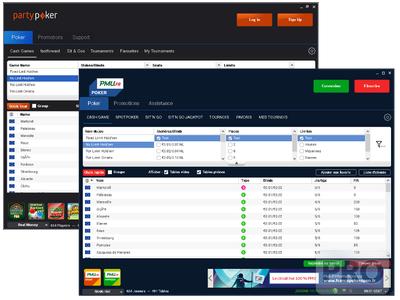The final day of May was the first opportunity for Pennsylvania casinos to begin applying for sports betting licenses. The new era of legalized sports betting began earlier that month when the US Supreme Court on May 14 ruled the Professional and Amateur Sports Protection Act (PASPA) unconstitutional.
By May 31, Pennsylvania state regulators adopted their first regulations of sports betting. The following day, the sports betting license application process opened up. Yet, just a few days into the state’s latest step toward entering the industry, casinos are apparently hesitant-at-best to get in on the action.
What is causing such hesitation?
On May 31, the Pennsylvania Gaming Control Board (PGCB) announced that “it has notified casino license holders that they can begin submission of petitions requesting approval to conduct sports wagering.”
Under the temporary regulations, casinos with licenses can conduct PA sports betting at any of the 12 casinos in the state (a 13th is on the way) as well as via sports betting apps. The regulations also allow wagering at off-track betting facilities in the state.
Yet this past weekend passed without any casinos leaping at the opportunity. Why?
Start with the $10 million, as that is the initial fee for casinos to receive approval to offer sports betting. Add in the hair-raising tax rate of 36 percent on sports betting revenue. If the rate stands, it will be the highest rate in any jurisdiction in the world.
“Pennsylvania is in a different bucket because of the tax rate,” Joe Asher, CEO of William Hill, told The Philadelphia Inquirer. “We can’t figure it out. Because of it, we haven’t spent the time or effort in Pennsylvania that we have in New Jersey. The tax rate is such a big challenge.”
Consider that New Jersey’s proposed tax rate is eight percent. Nevada, meanwhile, has a 5-percent state tax rate.
Said Asher:
“If you’re paying $10 million up front for the privilege of paying 41 percent (PA’s 36 percent plus the federal government’s 6-percent rate) in … taxes, plus the infrastructure costs, it’s difficult for me to see how you make money in Pennsylvania.”
PA wanted to be among the first
This was supposed to be the time casinos and sportsbooks would be champing at the bit to get in on the ground floor of sports betting. For some states, that is still the case. For example, Delaware rolled out its legalized wagering industry this week.
In New Jersey, UK bookmaker William Hill has announced partnerships with Monmouth Park racetrack and Atlantic City’s incoming Ocean Resort Casino. Resorts Casino Hotel teamed with daily fantasy sports giant DraftKings as its sportsbook.
The reasoning was sound for such quick deals. To be had is an estimated $150 billion in illegal sports wagers made annually across the country. Although an Oxford Economics report commissioned by the American Gaming Association estimates that all 50 states could only collect a combined $1.5 billion in taxes if using the 8 percent rate that New Jersey has proposed.)
In Pennsylvania, however, there does not seem to be as much urgency to land partners ahead of sports betting legislation.
The Keystone State was supposed to be one of the first to roll out regulated wagering. After all, the state in 2017 legalized sports betting as part of a comprehensive gaming expansion. Now, though, it seems Pennsylvania will be lucky to feature any sportsbooks. That is unless lawmakers’ attitudes change.
What can be done to spark interest?
Doug Harbach, spokesman for the PGCB, said the application process is open for 120 days. He noted that within the timeline are the starts of the college football (86th day) and NFL (98th) seasons. The PGCB is also open to comments from interested parties until June 15.
Yet some casinos are beginning to rethink what to do with sports wagering.
“We haven’t made a final determination on whether to pursue what is the highest rate on the planet for sports betting,” Hollywood Casino spokesman Eric Schippers told Penn Live.
Yes, Pennsylvania is in something of a budget crisis. Hence why the license fee and the tax rate are so steep. Lawmakers and industry experts are certain that casinos and sportsbooks will still want to operate within the state.
“I think they will all participate and would be shocked if they didn’t,” said Pennsylvania Rep. Robert Matzie. “In sports-crazy Pittsburgh and sports-crazy Philadelphia, you’re going to see it bring a lot more people into the casino, watching the big-screen TVs, and when they get those people in the door to bet they’ll also hopefully drop money at the tables or in the slots.”
“No matter how the economy’s going, whether it’s in recession or booming, the one business that never goes out of business is the casino,” he added.
Still, with neighboring states having lower tax rates and costs for casinos and sportsbooks to operate, how long does PA think it can stand by its requirements? For now, the one-time $10 million fee and the 36 percent tax rate is in place. Yet the PGCB said it will take its time to install the best regulations.
“We want to do this thing right,” said PGCB Commissioner Sean Logan, “and we are not going to rush through it.”
The post Extravagant Fees Turning PA Casinos Away From Sports Betting appeared first on Play Pennsylvania.





